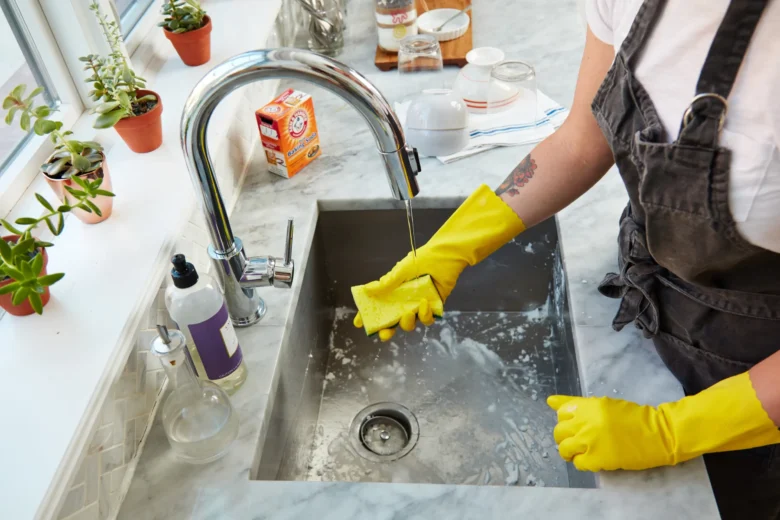to suggest:
A clean kitchen is not just a matter of aesthetics; This is essential for the health and well-being of your family. A cluttered kitchen can be a breeding ground for bacteria and pests, which can lead to all kinds of health problems. Moreover, a clean kitchen is more inviting and pleasant to work in. In this article, we discuss preventive measures that will help you maintain a clean and hygienic kitchen environment.
Regular cleaning schedule:
The first step to keeping your kitchen clean is to set up a regular cleaning schedule. This includes daily, weekly and monthly tasks. Daily tasks may include washing dishes, wiping countertops and sweeping floors. Weekly tasks may include cleaning the refrigerator, oven and microwave, while monthly tasks may include cleaning the pantry and checking for expired food.
Good food storage:
Proper food storage is critical to prevent contamination and foodborne illness. Invest in airtight containers to keep ingredients fresh and pest-free. Label and date leftovers to ensure you use them before they spoil. Clean the pantry and refrigerator regularly and remove expired items.
Dispose of waste properly:
Make sure your kitchen has a dedicated waste disposal system. Empty your trash regularly to prevent odors and deter pests. Consider recycling and composting to reduce waste and promote sustainability.
Organize your kitchen:
A tidy kitchen is easier to clean and maintain. Organize your kitchen by sorting items and storing them in designated places. This makes it easier to find what you need and keeps your kitchen tidy.
Clean devices regularly:
Over time, kitchen appliances such as ovens, stoves and microwaves can accumulate dirt and grease. Clean these devices regularly according to the manufacturer’s instructions to prevent dirt buildup and maintain their efficiency.
Pay attention to your sink and dishwasher:
The sink and dishwasher are areas that are often overlooked when cleaning. Make sure your sink is free of food debris and cleaned regularly. Running your dishwasher with detergent will prevent odors and maintain functionality.
Use natural cleaning products:
Consider using natural cleaning products in your kitchen. They are safer for your health and the environment. Baking soda, vinegar, and lemon are all great natural cleaners that can tackle most kitchen messes.
Pest control:
Look for signs of pests in the kitchen, such as feces or chewed food packaging. If you notice any problems, correct them immediately to prevent infection. Store food in airtight containers and keep your kitchen clean to avoid pests.
Replace sponges and rags regularly:
Sponges and wipes can harbor bacteria if they are not cleaned or replaced regularly. It is recommended to replace the sponge every few weeks and wash the wipes after each use to prevent cross-contamination.
Inform your family about:
Make sure everyone in the family understands the importance of keeping the kitchen clean. Encourage them to stick to a cleaning schedule and take responsibility for their mess.
finally:
A clean kitchen is the heart of a healthy home. By taking these precautions and practicing good habits, you can maintain a clean and hygienic kitchen environment that will benefit your family’s health and your overall well-being. A well-maintained kitchen is not only a pleasure to work in, it is also a place where you can prepare delicious and safe meals for your loved ones.



